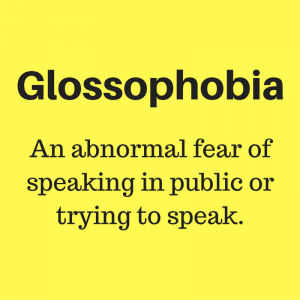Happy New Year! I wanted to share this article from the online magazine: Advance for Laboratory Professionals. They interviewed me as the mentoring expert.
Your Career Guide
How to find a mentor in the lab.
By Amanda Koehler
| The Karate Kid needed Mr. Miyagi. Luke Skywalker learned from Obi-Wan Kenobi. And you, too, could use a career mentor to help you metaphorically learn how to catch flies with chopsticks or how to “use the force.”
If you are new to the laboratory field or want to know what to do to advance your career, finding a mentor is a great idea to help you grow as a clinical laboratory scientist. “If you are a newbie who feels called to provide excellence in patient care diagnostics and you want to grow and learn, or if you are an experienced tech who wants to have a wider sphere of influence, finding the right mentor could be the scale tipper that helps you to achieve your goals,” explained Bob MacLafferty, administrative laboratory director, Copper Basin Medical Center, Copperhill, TN. How should you go about finding this person? ADVANCE spoke with two laboratorians and a mentor expert on how to find someone who can help you with your career.
“For example, if you choose a mentor in the organization in which you are currently employed, you want to work with someone who appreciates and respects the talents you bring,” she said. “This should be a person who knows how to listen and coach so you learn by doing.” Your mentor not only needs years of experience in the field, but she needs to want to be your mentor, too. “A mentor must be dedicated to taking on a mentee without feeling overwhelmed or resentful of the awesome task,” said Glen McDaniel, MS, MBA, MT, CLS, CLDir, a healthcare consultant, clinical lab scientist, speaker and freelance writer. “They should be someone who is knowledgeable as well as positive, so mentees are not just taught correctly but in an atmosphere of positivity and optimism.” MacLafferty added a good mentor should be professional, a good listener, accessible and trustworthy. Phelps also said the right person needs to be respected by administration in your facility and/or laboratory. This should also be a person you admire and feel comfortable around. “If your company has a formal mentoring program, try to learn about the people who have been involved with the program, especially those who blossomed because of their participation,” Phelps noted. “Former mentors and protégés from successful programs make great mentors.” If your facility doesn’t have a mentor program or you can’t find someone at your lab, try networking through a professional lab organization to find a mentor. Sometimes it can be beneficial to look outside of your company for a mentor, especially if the topics you wish to discuss are sensitive or deal with a superior, MacLafferty said. He also added if you view a superior as someone you admire and fits the mentor mold, don’t be afraid to ask her to be your mentor. You could also ask someone who is lateral to you in the laboratory. People to Avoid You also need to look for someone who is a good teacher, communicator and coach. If your potential mentor can’t do these things, he is not going to be able to help you. “If every time you ask this person how to do something, they answer, ‘Here, let me show you,’ you will not learn to think for yourself,” Phelps said. It’s also safe to avoid anyone who is so busy she can’t make time in her schedule to meet with you. Additionally, Phelps said if someone in the lab reminds you of one of your parents, and you don’t have a good relationship with your parents, it’s best to stay away. Working with Your Mentor “They can work with you on assessing your needs or the gaps in your training and then develop a set of goals for your work together,” Phelps explained. “A mentor can also help you to improve in areas that have been identified by your current supervisor as needing improvement.” McDaniel added a mentor needs a good grasp on the career and the organization’s policies and procedures. “He should be a personal and professional resource, including pointing the mentee in the right direction whenever the mentor himself cannot help directly,” McDaniel mentioned. Approaching Your Mentor Phelps said to ask her in person and say you are interested in developing your career and new skills. Be specific and say what about her impresses you and the qualities she has that makes you want her for a mentor. “Ask if they would be willing to be your mentor for a specific length of time, to accomplish a specific goal,” Phelps said. “If they say yes, or give you a maybe, ask for a 30-minute meeting at a time convenient for them to work out the details. If they decline, don’t take it personally.” Remember that if he has the time and feels like he has the skills, he will most likely be honored to be your mentor. “Most people like to be needed and find it complimentary that someone values their opinion and achievements to the degree they have wanted to be mentored by them,” McDaniel noted. Amanda Koehler ([email protected]) is associate editor of ADVANCE. |
 The Right Person
The Right Person

